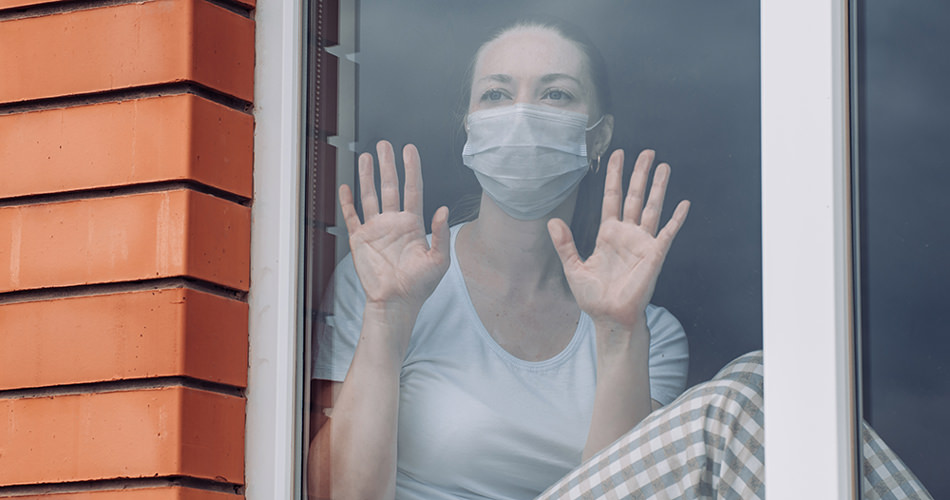
I, for one, believe every year has its own sets of ups and downs. This year, however, has been a shock to many.
Not withholding, 2020 has presented its own challenges, among which is currently the biggest fight we’re facing as a civilization, regardless of where we live. Being the first pandemic most of us experience in the entirety of our lifetime, it is only normal that we understand what is needed to face this fight, whether we’re part of the brave front-liners, or the everyday person, living our lives a day at a time.
With over a million confirmed cases and over 64,606 recorded deaths globally today, this pandemic has forever changed the way we live our ordinary everyday lives. Numbers are expected to increase with each counting day, given the nature and easy transmission of the virus.
For what seems like a curse and a black, looming cloud over our head, has started to nestle in each of our minds, causing paranoia and the general feeling of being unprotected. In times like this, staying home seems like the most sensible option to curb the disease from infecting others. Face to face communication and even stepping out of the door seems like a thing from the past. But how is being quarantined affecting our mental sobriety from sinking in too deep?
The answer remains unclear as to what extent being in quarantine does to our mental wellbeing. In an attempt to find the answer to the big question, calls for more studies and research has been done, with the Centre of Disease Control (CDC) in lead. In a recent study conducted to identify the effects of psychological distress on 11 past quarantine participants across 10 countries, it was discovered that most patients reported higher levels of post-traumatic stress disorder, an increase in symptoms of anxiety, irritability, insomnia and depression and an alarming level of stress faced. The eleven studies comprised of 5 patients following the outbreak of Ebola, 3 after the 2009/2010 H1N1 influenza spread, 2 after MERS and 1 after Equine influenza – all of which resemble participants from the general population, school/student communities, disease-contacts, hospital staff and horse owners.
What does this research mean to each of us, currently in quarantine?
The effects of a longer-term quarantine have a higher detrimental level on our psychological states. Studies have exposed an increased frequency in self-reported anxiety and anger, lasting up to 5 months after the quarantine had ended. Few studies have tested the psychological effects 12 months after an episode of quarantine ended, only to report much higher psychological distress, sometimes taking root even after 3 years of the quarantine end period.
Long term behavioural changes such as avoiding public places or gatherings is another psychological effect that can seriously damage our quality of life. As part of communities across levels, humans have a need to have a sense of belonging and companionship. Being in quarantine, especially when you’re living alone can highly threaten that crucial need to belong in a social group.
However, there are many ways one can do in order to stay sane and positive throughout this lockdown period. One of them is to not lose the connection we have with others. The best thing about this is that we have technology on our side. With the endless use of technological systems, we can stay connected in ways we could never imagine before. Separated from your grandparents and the rest of your family? A simple video call made possible through advancements in technology can fix that. Unsure whether you’re down with a cold and need advice on what to do? In certain countries, you’re able to contact your doctor through apps that allows you to seek professional medical advice without needing to take the trip to the doctors.
This is an exciting age to live in, and as challenging as times can be right now, we must understand and utilize creative, unique ways in order to remain connected. The importance of belonging to your community, as was your life before the virus struck should never change, merely to adapt.
Creating a routine and sticking to it is also a necessary step we need to take to decrease the implications of being in quarantine. We should be able to create routines, and allocate time for us to exercise, communicate, study/work or other daily responsibilities as needed. By doing those daily tasks online and virtually, we’re able to carry out our day-to-day duties without needing to leave our house. What’s most important is to adhere to the regulations and protocols set by local government and authorities. Only if we understand and practice these protocols such as social distancing and staying indoors, will we be able to prevent the pandemic from taking over us.
Wrapping up…
As challenging as it is, our first priority is to ensure physical health is not compromised through social distancing and regular precautionary habits such as sanitising your hands, wearing a protective face mask and avoiding touching the surface of public items like walls or the buttons of lifts. That said, the importance of keeping our mental health in check should not be pushed below and instead, should be a constant reminder for all of us to stay strong and persevere. It is our responsibility to ourselves, that we must not break. Keep your mental health a priority by speaking to a licensed BetterHelp counselor.




